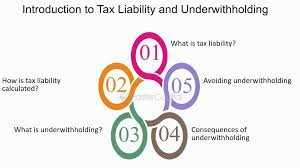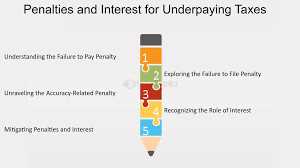Importance of Accurate Income Tax Withholding
Accurate income tax withholding is crucial for both individuals and the government. It ensures that individuals pay the correct amount of taxes throughout the year, preventing any surprises or financial burdens when it comes time to file their tax returns.
For individuals, accurate income tax withholding helps in budgeting and financial planning. By having the correct amount of taxes withheld from their paychecks, individuals can better estimate their take-home pay and plan their expenses accordingly. This prevents them from overspending and facing financial difficulties later on.
Accurate income tax withholding also helps individuals avoid penalties and interest charges. If individuals underwithhold and do not pay enough taxes throughout the year, they may be subject to penalties and interest charges when they file their tax returns. These additional costs can add up quickly and create unnecessary financial stress.
From the government’s perspective, accurate income tax withholding ensures a steady stream of revenue throughout the year. This revenue is essential for funding government programs and services, such as infrastructure, education, healthcare, and defense. Without accurate withholding, the government may face budget shortfalls and have to make difficult decisions regarding spending and resource allocation.
Furthermore, accurate income tax withholding helps maintain fairness in the tax system. When individuals accurately withhold their taxes, it ensures that everyone is contributing their fair share based on their income. This promotes equity and helps distribute the tax burden more evenly among taxpayers.
Factors Contributing to Underwithholding
Underwithholding occurs when an individual or household does not have enough income tax withheld from their paychecks throughout the year. This can happen due to a variety of factors, including:
1. Changes in Income

One of the main factors contributing to underwithholding is changes in income. If an individual receives a raise, bonus, or starts a new job with a higher salary, their income may increase significantly. However, if they fail to update their withholding information, they may continue to have the same amount of taxes withheld as before, resulting in underwithholding.
2. Incorrect Filing Status
Another factor that can lead to underwithholding is selecting an incorrect filing status on the W-4 form. The filing status determines the tax rates and deductions that apply to an individual. If someone selects a filing status that does not accurately reflect their situation, they may end up having too little tax withheld.
3. Multiple Jobs or Multiple Income Sources
Having multiple jobs or multiple sources of income can also contribute to underwithholding. Each employer or income source may withhold taxes based on the assumption that it is the individual’s only source of income. However, when combined, the total income may push the individual into a higher tax bracket, resulting in underwithholding.
4. Changes in Tax Laws
Changes in tax laws can also impact withholding amounts. If tax laws change during the year, individuals may need to adjust their withholding to ensure they are paying the correct amount of taxes. Failure to do so can lead to underwithholding.
5. Failure to Update Withholding Information
Lastly, underwithholding can occur if individuals fail to update their withholding information when necessary. This can happen if they experience a significant life event, such as getting married, having a child, or buying a home. These events can impact an individual’s tax liability, and failing to update withholding information can result in underwithholding.
Consequences of Underwithholding
Underwithholding can have significant consequences for individuals and businesses alike. When individuals do not have enough taxes withheld from their income, they may end up owing a large tax bill when they file their tax return. This can be a major financial burden, especially if the individual is not prepared to pay the amount owed.
In addition to the financial consequences, underwithholding can also lead to penalties and interest charges imposed by the tax authorities. These penalties can further increase the amount owed and make it even more difficult for individuals to pay off their tax debt.
For businesses, underwithholding can result in cash flow problems. If a business does not withhold enough taxes from its employees’ wages, it may not have enough funds to cover its own tax obligations. This can lead to penalties and interest charges, as well as damage to the business’s reputation.
Furthermore, underwithholding can also have long-term consequences for individuals and businesses. If individuals consistently underwithhold their taxes, they may develop a pattern of noncompliance with tax laws. This can result in increased scrutiny from tax authorities and potential audits in the future.
In summary, underwithholding can have serious financial and legal implications. It is important for individuals and businesses to accurately calculate and withhold the correct amount of taxes to avoid these consequences. Consulting with a tax professional or using tax software can help ensure accurate withholding and prevent the negative effects of underwithholding.
Strategies to Avoid Underwithholding

Underwithholding can lead to financial difficulties and unexpected tax bills. To avoid underwithholding, individuals can employ several strategies:
| 1. Reviewing W-4 Form | One of the most effective ways to avoid underwithholding is to review and update the W-4 form. This form determines the amount of tax withheld from an individual’s paycheck. By accurately filling out the form and adjusting allowances, individuals can ensure that the correct amount of taxes is withheld. |
| 2. Calculating Estimated Taxes | For individuals who have income that is not subject to withholding, such as self-employment income or investment income, it is important to calculate and pay estimated taxes. By estimating the amount of taxes owed and making quarterly payments, individuals can avoid underwithholding and potential penalties. |
| 3. Monitoring Income and Tax Changes | It is crucial to stay informed about any changes in income or tax laws that may affect withholding. If there are significant changes, such as a raise or a change in tax brackets, individuals should adjust their withholding accordingly to avoid underwithholding. |
| 4. Utilizing Tax Planning Tools | |
| 5. Seeking Professional Advice | If individuals are unsure about how to accurately withhold taxes, it is advisable to seek professional advice from a tax accountant or financial advisor. These professionals can provide guidance and ensure that individuals are withholding the correct amount of taxes. |
By implementing these strategies, individuals can avoid the pitfalls of underwithholding and ensure that they are meeting their tax obligations in a timely and accurate manner.

Emily Bibb simplifies finance through bestselling books and articles, bridging complex concepts for everyday understanding. Engaging audiences via social media, she shares insights for financial success. Active in seminars and philanthropy, Bibb aims to create a more financially informed society, driven by her passion for empowering others.
